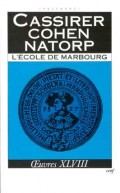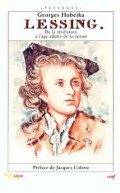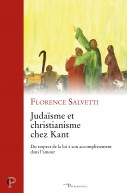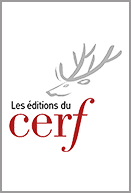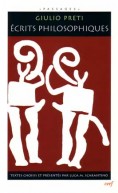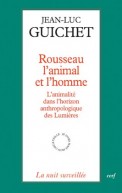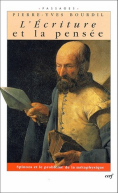
Kant philosophe newtonien
Collection Passages
370 pages - juin 2004
49,50€
Ce livre marque le début d'une enquête sur l'idéal de scientificité de la philosophie et les modalités de sa réalisation. L'exégèse s'efforce ici de dégager le mouvement constitutif du système kantien dans sa totalité : on étudie la réflexion philosophique originaire qui institue le système et entend lui conférer le statut de science. Il s'agit donc d'un examen des procédés opératoires, du philosopher dans sa dimension la plus originaire et non pas des concepts thématiques (espace, temps, catégories, etc.) ni de la philosophie comme résultat ou doctrine. Il apparaît que Kant, dès ce niveau, est un philosophe newtonien : comme il le déclare dès 1762 et le répète en 1787 et 1788, la méthode du philosopher est analogue à celle du physicien ; la fondation de la physique newtonienne n'est qu'une conséquence. L'étude reconstitue de manière structurale l'engendrement du système, par la mise en œuvre de cette méthode dès les trois Critiques et jusqu'aux Passages, donnant ainsi à voir le mode de constitution de l'ensemble du système comme philosophie visant à la scientificité. De manière ponctuelle, les éléments de la philosophie kantienne apparaissent sous un nouveau jour. Ainsi, la déduction, thème fort travaillé notamment depuis les travaux de Strawson, se voit mieux circonscrite grâce à la mise en relation avec les autres processus démonstratifs et la totalité de la démarche probatoire. Plus profondément, résulte de cette exégèse un nouveau portrait de Kant et de la philosophie critique et transcendantale. Son visage d'« Aufklärer » n'est plus brossé avec pour seul fond les Lumières allemandes mais, de manière primordiale, ces Lumières anglaises, françaises et hollandaises dont le newtonianisme est la marque méthodologique. Enfin, grâce à la mise au jour de la méthode constitutive de la philosophie transcendantale, la figure de Kant apparaît dans toute sa distinction ; l'étude du développement de l'idéalisme allemand (comme plus tard des néokantismes et des phénoménologies) à partir de la question de « la philosophie comme science rigoureuse » - expression reprise par Husserl mais forgée par Reinhold en 1790 - y gagne une singulière précision.
--
This book marks the beginning of an investigation into the ideal of scientificity in philosophy, and by what means it can be realised. An exegetical study identifies the constitutive movement of the Kantian system in its totality: the original philosophical reflection that institutes the system and aims to confer upon it the status of a science. Which makes this book an examination of operational procedures, of philosophical thought in its most original dimension, rather than of thematic concepts (space, time, categories etc.) or of philosophy as a result or a doctrine. What emerges is that Kant, even at this level, is a Newtonian philosopher. As he proclaimed in 1762 and repeated in 1787 and 1788, the philosopher’s method is analogous to the physician’s: the foundation of Newtonian physics is simply the consequence. This study reconstitutes the creation of the system in a structural manner, by applying this method to the three Critiques right through to Passages, and showing how the system in its ensemble was established as a philosophy whose objective is to achieve scientificity. Frequently, elements of Kantian philosophy appear in a new light. For example deduction, a theme that has been widely treated since the works of Strawson, is more clearly delineated thanks to being observed in relation to other demonstrative procedures; and to the probative process in its entirety. But on a deeper level, what emerges from this work is a new portrait of Kant and of transcendental and critical philosophy. His ‘Aufklärer’ face is no longer portrayed against the German Enlightenment but, primordially, the English, French and Dutch Enlightenments, all of whose methods are marked by Newtonism. Lastly, thanks to the updating of the constitutive method of transcendental philosophy, the figure of Kant appears in all its distinction; and the study of the development of German idealism (as later of Neo-Kantisms and phenomenologies), - starting out from the question of ‘philosophy as a rigorous science’, an expression taken up by Husserl but originally forged by Reinhold in 1790 – gains extraordinarily in precision.
--
This book marks the beginning of an investigation into the ideal of scientificity in philosophy, and by what means it can be realised. An exegetical study identifies the constitutive movement of the Kantian system in its totality: the original philosophical reflection that institutes the system and aims to confer upon it the status of a science. Which makes this book an examination of operational procedures, of philosophical thought in its most original dimension, rather than of thematic concepts (space, time, categories etc.) or of philosophy as a result or a doctrine. What emerges is that Kant, even at this level, is a Newtonian philosopher. As he proclaimed in 1762 and repeated in 1787 and 1788, the philosopher’s method is analogous to the physician’s: the foundation of Newtonian physics is simply the consequence. This study reconstitutes the creation of the system in a structural manner, by applying this method to the three Critiques right through to Passages, and showing how the system in its ensemble was established as a philosophy whose objective is to achieve scientificity. Frequently, elements of Kantian philosophy appear in a new light. For example deduction, a theme that has been widely treated since the works of Strawson, is more clearly delineated thanks to being observed in relation to other demonstrative procedures; and to the probative process in its entirety. But on a deeper level, what emerges from this work is a new portrait of Kant and of transcendental and critical philosophy. His ‘Aufklärer’ face is no longer portrayed against the German Enlightenment but, primordially, the English, French and Dutch Enlightenments, all of whose methods are marked by Newtonism. Lastly, thanks to the updating of the constitutive method of transcendental philosophy, the figure of Kant appears in all its distinction; and the study of the development of German idealism (as later of Neo-Kantisms and phenomenologies), - starting out from the question of ‘philosophy as a rigorous science’, an expression taken up by Husserl but originally forged by Reinhold in 1790 – gains extraordinarily in precision.
- Dimensions : 145x235x25
- ISBN : 9782204074650
- Poids : 550 grammes
DU MÊME AUTEUR
> VOIR TOUS LES LIVRES DE l'AUTEUR
DANS LA CATÉGORIE PHILOSOPHIE MODERNE (XVIE-XIXE S.)
L'Écriture et la pensée
Spinoza et le problème de la métaphysique
de Pierre-Yves Bourdil
250 pages - févr. 1998

